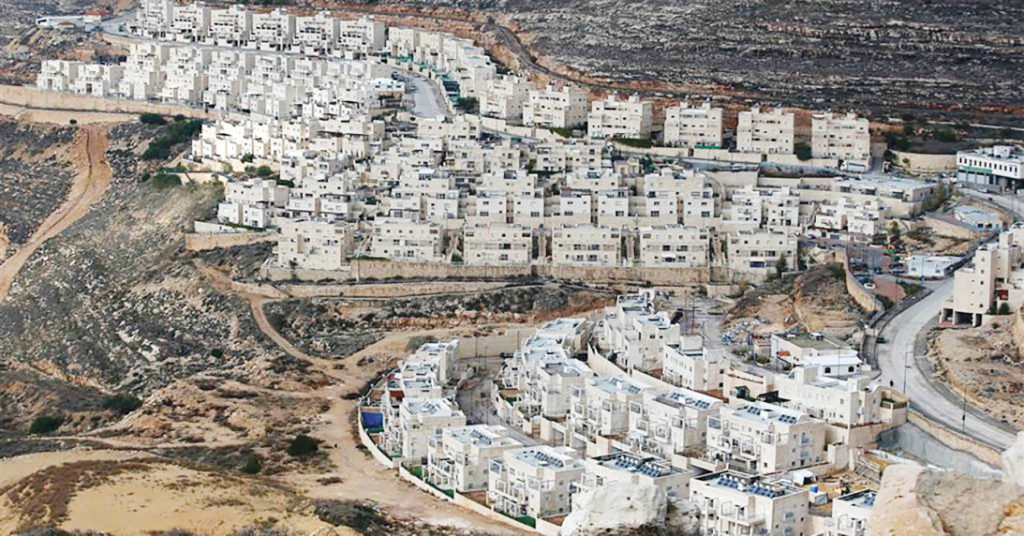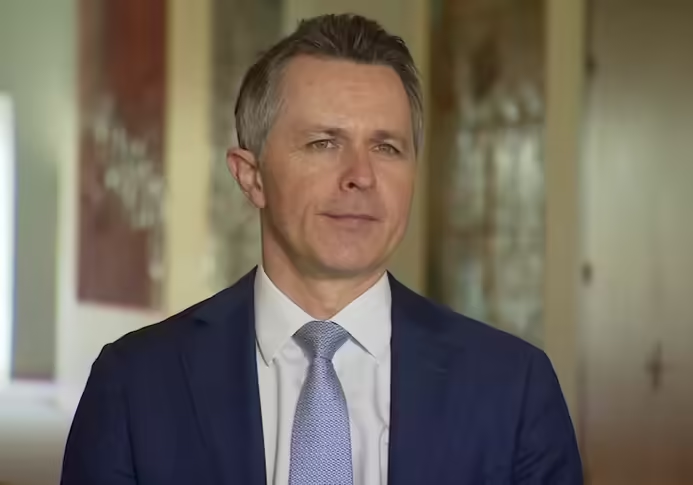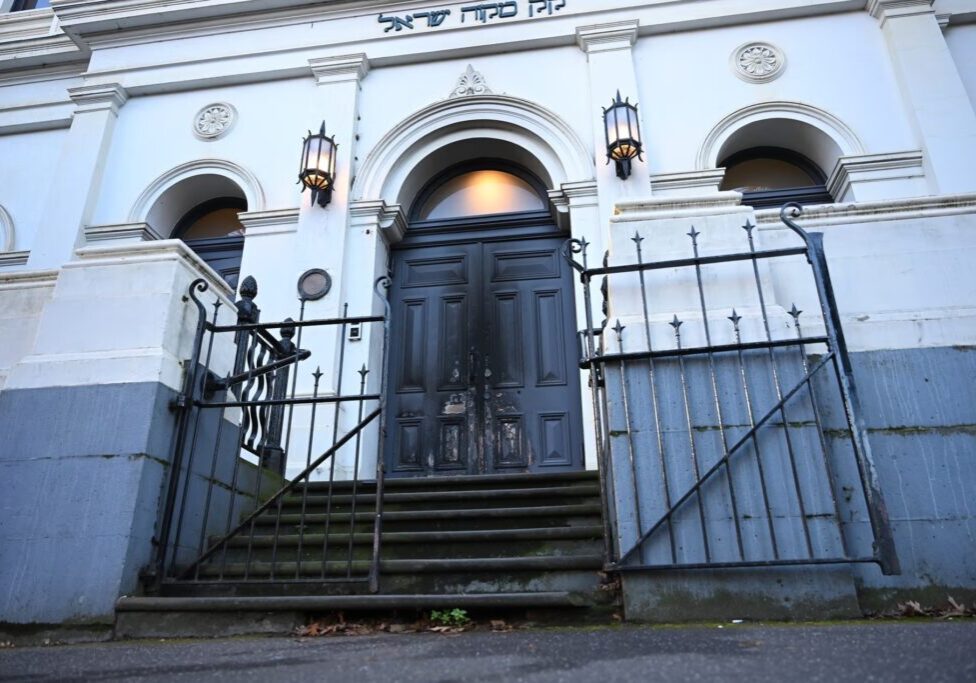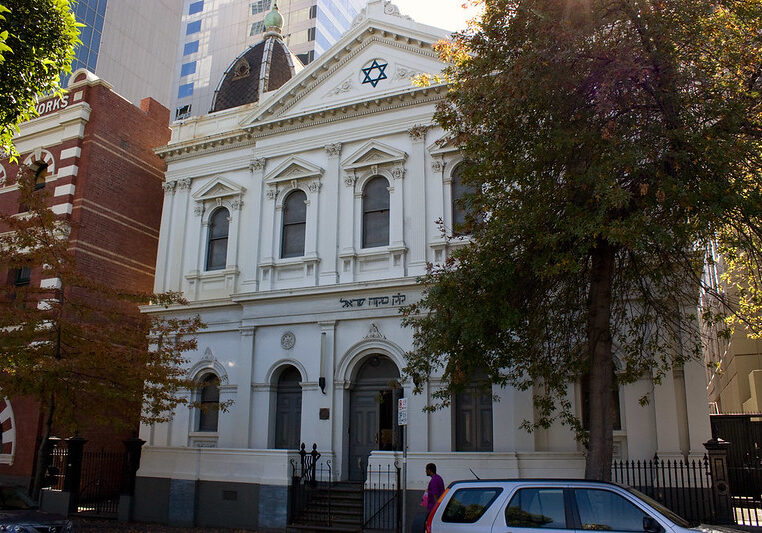Australia/Israel Review
Noted and Quoted – February 2021
Feb 1, 2021 | AIJAC staff

Pyramid scheme
The Age and Sydney Morning Herald (Jan. 13) reported on a well-intentioned but likely futile initiative launched in Cairo by Egypt, Germany, France and Jordan to revive Israeli-Palestinian peace talks.
Egyptian President Abdel Fattah el-Sisi was quoted saying that “a settlement to the Palestinian cause will change the reality and conditions of the entire region for the better, by opening new paths and horizons for regional cooperation between governments and peoples.”
The report explained that Sisi’s comments were made in the context of the recent peace accords between Israel and Bahrain, the United Arab Emirates, Sudan and Morocco.
The story crossed over into opinion when it stated that “the Palestinians suffered numerous setbacks under the outgoing administration of US President Donald Trump.”
The “setbacks” included “Trump… sidelin[ing] the Palestinian Authority, recognis[ing] Jerusalem as Israel’s capital and mov[ing] the US Embassy there from Tel Aviv. His administration also slashed financial assistance for the Palestinians and reversed course on the illegitimacy of Israeli settlements on land claimed by the Palestinians.”
However, it said now the Palestinians “[a]re ready to work with the incoming Biden administration.”
But as the Australian noted on Dec. 26, Joe Biden “sensibly, has indicated he will not try to dismantle many of Mr Trump’s achievements. He will not revisit the relocation of the US embassy from Tel Aviv to Jerusalem, a move mindlessly denounced by Arab loudmouths in 2017 as certain to inflame a major regional conflict.”
Status check
An SBS TV “World News” report (Jan. 12) of Israeli intentions to build 800 housing units in settlements on the West Bank claimed that prior to 2019, “America’s long-held position” was “that West Bank settlements broke international law.”
In fact, since the Carter Administration, the US has never said settlements break international law or are illegal.
Rather, the official position for decades was that settlements were unhelpful and not “legitimate”. Even the highly critical Obama Administration carefully avoided labelling them illegal, instead using the word “illegitimate” in its frequent criticisms of construction in settlements.
Successive US administrations accepted that the West Bank and Gaza are disputed territories whose legal status has remained undetermined since the 1948 war when Jordan illegally occupied territory that had been part of British Mandatory Palestine.
In 2019, the US confirmed that its stance was that Israeli civilian settlements in the West Bank are not per se inconsistent with international law, which clarified something that had previously been ambiguous but did not reverse a settled policy.
Obsession
The Australian Government’s October 2018 announcement of a review to consider whether Australia should recognise west Jerusalem as Israel’s capital sent sections of the media, particularly the ABC and then-Fairfax, now Nine papers, into a frenzy.
It was claimed that such a move would have unforeseen consequences, cause great offence, and risk a free trade agreement that was being negotiated with Indonesia, the world’s most populous Muslim nation.
But after weeks of negative media, Fairfax eventually reported from Indonesia that demonstrations were orchestrated, poorly attended and many of the protestors were paid to attend and unsure what they were doing there.
Moreover, as AIJAC noted, Indonesian media coverage of Prime Minister Scott Morrison’s review and its outcome was practically non-existent.
Yet, more than two years later, the decision still rankles some media commentators.
The decision popped up in a critique of Morrison’s leadership record by the Age’s Sean Kelly (Dec. 21), who wrote, “He…made a bad decision about our embassy in Israel in a clumsy attempt to win a byelection – which he lost.”
Australia did not move the embassy. It recognised west Jerusalem, sovereign Israeli territory, as Israel’s capital, which is what it has been since 1949.
At the same time, Australia recognised that the Palestinian national movement aspires to have a capital in east Jerusalem.
So how exactly that is a “bad decision”, Kelly did not explain.
Cold shower
In the Canberra Times (Jan. 15), former federal Liberal leader John Hewson smashed the record of US President Donald Trump – which is fair enough.
However, according to Hewson, “[Trump] didn’t bring peace to the Middle East, indeed dangerously tilted the situation even more in favour of Israel.”
Yet by almost any reasonable measure, the Middle East is better off in 2021 than it was before Trump took office.
In contrast to the dithering of the Obama Administration, Trump was quickly able to neutralise Islamic State as an ongoing regional threat.
Trump’s decision, in 2018, to withdraw from the 2015 nuclear deal with Iran and reimpose sanctions on the country was extremely controversial in the West. But it was welcomed in the region for reining in the Islamist regime’s ability to use its proxies to cause havoc across the Middle East, including in Syria and Iraq.
And most importantly, in the space of three months in 2020, Trump helped broker normalisation and peace agreements between Israel and the UAE, Bahrain, Morocco, and Sudan to open up a new era of cooperation in the Middle East.
Yet Hewson thinks all this is somehow “dangerous.”
Clive of Iran
In the Canberra Times (Jan. 12), academic Clive Williams seemed to imply the threat from Iran and its nuclear program was a figment of Israel’s imagination.
Williams claimed the 2015 Joint Comprehensive Plan of Action (JCPOA) “tightly restricted what Iran could do within its nuclear program and established an intrusive [International Atomic Energy Agency] inspection regime in return for the lifting of sanctions.”
But, he said, Donald Trump withdrew from the deal and reimposed sanctions on Iran in 2018 “at the urging of Israel’s Prime Minister [Binyamin] Netanyahu, who claimed Iran had been covertly pursuing a nuclear weapons program [emphasis added].”
He also said Israel, “was almost certainly responsible” for damaging the Natanz enrichment facility and killing Iran’s chief nuclear scientist Mohsen Fakhrizadeh “because it will not tolerate another nation in the Middle East having a nuclear program that could lead to a weapon – particularly not Iran, whom it sees as an existential threat [emphasis added].”
In an earlier piece in The Conversation (Jan. 4), Williams had implied Trump might attack Iran at Netanyahu’s behest and Netanyahu was pushing for an attack purely for personal political advantage, saying an attack, “would not only give him [Netanyahu] the opportunity to become a tough wartime leader, but also help to distract the media from his corruption charges.”
A better deal
A published response in the Canberra Times (Jan. 19) to Clive Williams by AIJAC’s Jamie Hyams stated that “Iran was in breach of the JCPOA even before the US withdrawal” and the agreement “must be renegotiated because it is fatally flawed” and “paves the way for the regime to legally” attain nuclear weapons.
He said Iran had been “concealing its previous nuclear weapons program, as revealed by a daring Israeli raid on the program archive in Tehran. Inspectors from the International Atomic Energy Agency have also recently found evidence of previously unknown forbidden nuclear activity in the past.”
Hyams called on the Biden Administration to take advantage of President Trump’s sanctions and renegotiate the JCPOA to close loopholes that “allow Iran to limit inspections, and continue work on nuclear-capable missiles. The deal must… be renegotiated to remove the sunset clauses, prohibit missile activity and tighten the inspection regime.”
He also noted that Israel was not the only country concerned about the JCPOA, saying Saudi Arabia, Egypt, the UAE, Bahrain and Morocco, “are clamouring for the Biden administration to act firmly and urgently on the Iranian file.”
Earlier in the Canberra Times (Dec. 15), AIJAC’s Ahron Shapiro had debunked claims that the killing of Iran’s chief nuclear scientist Mohsen Fakhrizadeh was meant to hinder the Biden Administration’s ability to return to the JCPOA.
Shapiro quoted veteran US Middle East envoy Dennis Ross’ Nov. 30 Tweet that “one can debate the logic of killing of Mohsen Fakhrizadeh. But to argue it was done to frustrate the incoming Biden administration ignores reality. Such an operation takes extensive planning, having operatives on the ground, actionable intelligence. It can’t be spur of the moment.”
Heavy metal
On Jan. 15, the Australian reported that Iran had informed the International Atomic Energy Agency (IAEA) it was advancing research into uranium metal production, a new breach of the 2015 JCPOA deal.
The AFP sourced report said Iran claims it will use the uranium metal to make advanced fuel for a research reactor but “the topic is sensitive because uranium metal can be used as a component in nuclear weapons.”
It said that under the JCPOA, Iran cannot produce or acquire plutonium or uranium metal or their alloys for 15 years, but after 10 years “Iran would have been allowed to initiate research on producing uranium metal-based fuel “in small agreed quantities” but only if the other parties to the deal had given approval.
In contrast to Clive Williams, the report noted that the IAEA has said “Teheran had a structured weapons program until 2003.”
Signs of the Times?
In the Australian (Dec. 18), columnist Henry Ergas accused the progressive left of “deafening silence” in response to former US President Barack Obama using antisemitic tropes to describe former French President Nicholas Sarkozy in his recently released memoir A Promised Land.
Ergas said Obama described Sarkozy as a “quarter Greek Jew” and so it is “little wonder, then, that Sarkozy has ‘dark, expressive, Mediterranean features,’ which resemble the exaggerated, often distorted figures ‘of a Toulouse-Lautrec painting.’ Little wonder, too, that he is ‘all emotional outbursts and overblown rhetoric,’ while his conversation, which reflects unbridled ambition and incessant pushiness, ‘swoops from flattery to bluster to genuine insight.’”
According to Ergas, “no other world leader is characterised by Obama in anything like those terms” and recalls the “insults notoriously hurled at Benjamin Disraeli, the first person of Jewish birth to become Britain’s prime minister.”
Had “Sarkozy’s flaw been that he was black, gay or Muslim, each with its associated stereotypes, the slur would have unleased storms of protest,” Ergas said.
But the “deafening silence” in the reviews of the book “from the New York Times to the Washington Post” is due to the “normalisation of casual anti-Semitism” from the “progressive side of politics”.
Ergas noted the New York Times International Edition had reprinted a cartoon of Israeli PM Binyamin Netanyahu that “could have been lifted from the Nazis’ Der Sturmer.”
Ergas quoted Times columnist Bret Stephens saying the Times’ editorial staff are “hyper-alert” to nearly every “conceivable expression of prejudice” but could not spot “blatant expressions of anti-Semitism” because “torrential criticism of Israel and the mainstreaming of anti-Zionism… has become so common place that people have been desensitised to its inherent bigotry.”
Peace off
An online analysis from ABC Middle East correspondent Eric Tlozek (Dec. 18) on the four peace treaties Israel secured in the last quarter of 2020 included two high profile commentators with track records of espousing extreme anti-Israel opinions.
UK-based, Israeli-born academic Avi Shlaim was quoted saying, “The Trump administration is completely, blindly and absurdly pro-Israeli and anti-Palestinian … Trump’s foreign policy towards the region very much bears the fingerprints of Netanyahu…”
Deakin University academic Scott Burchill criticised the price paid for Morocco signing a peace deal, saying, “Essentially Trump is saying [to Morocco]: ‘If we recognise your colonial occupation of Western Sahara, will you recognise Israel’s colonial occupation of Palestine and we’ll throw some drones in for free?’ And they said, ‘fine’.”
Tlozek said that after the JCPOA was signed, “the Sunni Arab states and Israel feared that would allow Iran to increase its support for regional proxy groups they were fighting – like the Houthi rebels in Yemen, Shi’ite militias in Iraq, militant Palestinian factions in Gaza and the Lebanese Shi’ite group Hezbollah – and accelerate its development of advanced weaponry – like precision-guided and ballistic missiles.”
He added that “the focus on Iran means the Israeli-Palestinian conflict is no longer the predominant problem in the Middle East.”
It could actually be argued that the Israeli-Palestinian conflict stopped being the predominant problem in the Middle East in 1979 when the Soviet Union invaded Afghanistan, Shi’ite Islamists usurped the Iranian revolution, and extremists seized the Grand Mosque in Mecca, igniting the growth of Sunni Islamist extremism.
The consequences of those events shaped the greater Middle East for the next 40 years, including the eight-year long Iran-Iraq war; the invasion of Kuwait; the two Gulf Wars; the rise and fall of al-Qaeda and Islamic State; the “Arab Spring” movement, and the Syrian civil war.
The Middle East covers a vast territory filled with hundreds of millions of people with their own interests and problems that are totally divorced from Israelis and Palestinians. Yet somehow, many in the media appear to have never noticed this until now.
Change is the only constant
In contrast to Burchill and Shlaim, Middle East security analyst and former AIJAC guest Jonathan Spyer in the Australian (Dec. 28) took a bird’s eye view of the Middle East, noting the shift in the geopolitics of the region over the last five decades.
Spyer said that “50 years ago… the Jewish state faced a united wall of rejection from the Arabic-speaking states. By contrast, it maintained working diplomatic relations with the two non-Arabic-speaking countries of the Middle East — Iran and Turkey.”
The US-brokered normalisation agreements with four Arab states “demolish the notion of anything so simple as an ‘Arab-Israeli conflict’ remaining in existence,” he explained.
He noted that Iran is not the only challenge that is on the minds of the Gulf states who “see Iran and its allies, and Sunni political Islam as represented by the Muslim Brotherhood and the government of Turkey, as central challenges.”
Moreover, he said, “it is interesting to note today it is the two other non-Arab states in the region – Iran and Turkey – that form the most powerful opponents of Jerusalem. The same states who, back in 1973, were semi-allies.” This is an important lesson too, he added, because “today’s enemy can be tomorrow’s friend, and vice versa, and in [the Middle East] things can change, for better or worse, completely, and fast.”
To Fight the Far Right
AIJAC Senior Policy Analyst Sharyn Mittelman, in the Herald Sun (Jan. 18), noted that the Australian Security Intelligence Organisation reported that far-right extremism now constitutes 40% of its caseload, which emphasises the “special onus on schools and parents to educate about the dangers of racial and religious hatred.”
An important aspect of this is Holocaust education, but “a survey commissioned by the Conference on Jewish Material Claims Against Germany found two-thirds of young Americans did not know six million Jews were murdered in the Holocaust, and one in 10 adults under the age of 40 did not know or accept the truth the genocide happened.”
She pointed out that there is a proliferation of Holocaust denial and other types of antisemitism on social media and elsewhere, making the importance of education even more pressing.
Philistines talk of Palestine
Anachronistically calling ancient Israel or Judea “Palestine” is a Christmas perennial in the media.
On Dec. 24, the Australian editorial quoted the Christmas message of Archbishop Geoffrey Smith, the Anglican Primate of Australia, saying, “We might be conscious we are living in uncertain times, but the context of Jesus’s birth was full of uncertainty. Palestine was oppressed by the occupying Roman empire. Various parties within Judaism were jockeying for influence and enthusiastically trying to recruit people to their cause.’’
The same day, columnist Tory Shepherd wrote in the Adelaide Advertiser, “Was Christ really born in Bethlehem on this day? Well, if you believe he was born from a virgin mother, the precise details of the rest of it probably don’t really matter. But biblical scholars are divided. And they’re divided because the various gospels are divided. Some say Bethlehem, some say Nazareth. Maybe Palestine, maybe Israel.”
The latter answer is straightforward. Jesus was not born in Palestine.
The books of Luke and Matthew state that Jesus was born in Bethlehem in Judea.
Nowhere in the four Christian gospels does the word Palestine even appear.
It was not until 134 C.E. that the term ‘Palestine’ was used to describe the Land of Israel or Judea. Following Jewish uprisings, the Roman Emperor Hadrian wanted to obliterate the Jewish identity of the area and chose a name that referenced the Philistines, who had lived on the coastal plain around Gaza but disappeared from history by about 600 BCE.
Out of Parliament
Prime Minister Scott Morrison (Lib., Cook) asked at a press conference about the release from jail in Indonesia of Abu Bakr Bashir, the spiritual leader of terror group Jemaah Islamiah which carried out the 2002 Bali bombings – Jan. 8 – “… this is very distressing to the friends and families of the Australians, the 88 Australians who were killed in the Bali bombings of 2002… It’s hard and it’s gut wrenching… we have always called for those who are involved, not just I as Prime Minister, my predecessors of all political persuasions to face tougher, proportionate and just sentences in these cases… We have made clear through our Embassy in Jakarta the concerns we have that such individuals be prevented from further inciting others. And we will continue to follow those sort of issues through.”
Opposition Leader Anthony Albanese (ALP, Grayndler) asked at a doorstop about Bashir’s release – Jan. 8 – “I don’t want to see this promoter of terrorism and violence released ever. And I think this will be a difficult day for the families of those who were victims of the Bali bombings and other activities… and I would hope that the Australian Government, I’m sure, are making strong representations to make sure that the closest eye is kept on this bloke to make sure that his activities don’t further the, quite frankly, catastrophic human consequences of his ideological position.”
Opposition Leader Anthony Albanese (ALP, Grayndler), asked in an interview with Marcus Paul on 2SM about social media shutting down Donald Trump – Jan. 11 – “You have organisations like QAnon, which spreads all sorts of antisemitic racist rubbish, that is actually dangerous. And it’s got to be called out.”
Foreign Minister Senator Marise Payne (Lib., NSW) in a joint media release with Attorney-General Christian Porter (Lib., Pearce) on the announcement that Israel’s Justice Minister Avi Nissenkorn had confirmed he had signed the extradition order for Malka Leifer to be sent to Australia to face trial on serious allegations of child sexual assault – Dec. 18 – “My thoughts this morning remain with the alleged victims, including Dassi Erlich, Nicole Meyer, Elly Sapper, who have mounted a determined campaign to ensure that the allegations against Ms Leifer are heard by the Australian legal system. They have shown enormous patience and resolve. I hope these developments overnight give them confidence that this chapter in the long-running and difficult process is drawing to a close, and the charges against Malka Leifer can soon be heard in Australia.”
Shadow Foreign Minister Senator Penny Wong (ALP, SA), Shadow Attorney-General Mark Dreyfus (ALP, Isaacs) and Josh Burns (ALP, Macnamara) issued a joint media release on the announcement of Leifer’s extradition from Israel – Dec. 17 – “Labor welcomes the imminent conclusion of the 12 year battle to bring Malka Leifer to justice in Australia…
“Labor appreciates the statement from Israeli Justice Minister Avi Nissenkorn that ‘it is our moral duty to allow the Australian legal authorities to put her on trial.’ Labor pays tribute to the courage of Dassi Erlich, Nicole Meyer and Elly Sapper in their long pursuit of justice since Malka Leifer fled Australia 12 years ago to avoid standing trial.”
Tags: Australia, Media/ Academia






